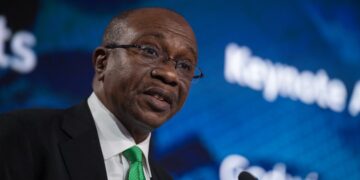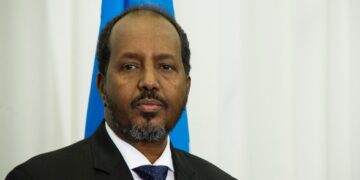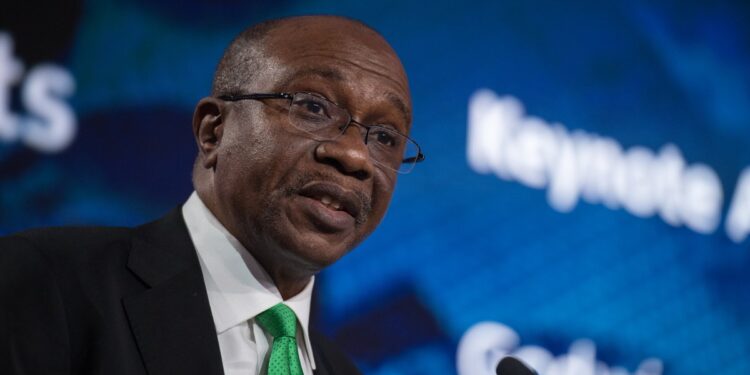The significant decline of Nigeria’s foreign exchange earnings as well as revenue accruable to the federation account have persisted due to declining crude oil prices at the international market, the Governor of the Central Bank of Nigeria (CBN), Godwin Emefiele, has said.
He also attributed the decline to a cut in the country’s crude oil production quota in compliance with the Organization of Petroleum Exporting Countries (OPEC) resolution last April.
Also, the Minister of Finance, Budget and National Planning, Zainab Ahmed, has quoted the National Bureau of Statistics (NBS) as giving a projection that Nigeria’s economy is primed to relapse into the second recession n four years by contracting by about 4.2 per cent from the third quarter of this year.
With the economy already contracting by about 6.1 per cent in the second quarter, analysts have concluded that although the performance of the economy is expected to improve, another contraction in the third quarter would complete the three consecutive cycles required for an economy to go into recession.
Impact of COVID-19 pandemic
Following the outbreak of the coronavirus pandemic earlier in the year, the crude oil market was badly impacted, resulting in the crash in oil prices from an average of $60 per barrels to less than $20 in March and below $10 in mid-April. To strengthen crude oil prices and firm up the market, the OPEC resolved to cut members’ production by about 9.7million barrels between May 2020 and April 2022.
In compliance with the OPEC resolution, Nigeria’s output dropped from about 1.81 million barrels per day in 2019 to about 1.412 million barrels per day (BPD) between May and June. With crude oil prices dropping to less than $10 per barrel, earnings from crude oil exports also dropped significantly, with a commensurate impact on the monthly accruals in the Federation Account over the period.
Although crude oil prices are gradually firming up from about $19 per barrel in April 2020 to about $42 per barrel currently, the CBN governor said they are yet to return to the pre-pandemic average level of over $60 in January 2020.
Mr Emefiele, who spoke at the 13th Banking and Finance Annual Conference of the Chartered Institute of Bankers of Nigeria (CIBN) in Abuja on Tuesday, said the profound impact of COVID-19 on the Nigerian economy in the 1st and 2nd quarter created a dual challenge for policymakers. “We had to address a public health challenge while trying to reverse a significant downturn in economic activities,” he said. The theme of the conference was “Facilitating a Sustainable Future: The Role of Banking and Finance.”
Nigerian ecnomy prior to COVID-19
Prior to the outbreak of COVID-19 in Nigeria, the country’s economy kept a positive growth trajectory, with 12 consecutive quarters of positive growth following the 2016 – 2017 recession, along with significant foreign capital inflows due to improved fundamentals of the economy.
“GDP growth for 2019 stood at 2.29 per cent, supported by strong growth of 2.55 per cent in the 4th quarter of 2019, and capital inflows of $3.8 billion in the same quarter,” he said. In the first half of 2020, at the onset of the pandemic, Mr Emefiele said policy measures adopted to contain the spread of the virus caused a significant shock to the country’s economy, with the downturn in economic activity significantly impacted in the 2nd quarter of the year.
The downturn, he noted, was driven by a series of external factors, including lockdown measures imposed in order to curtail the spread of the virus, which had a significant effect on a number of sectors. The drop in crude oil earnings as well as the drop in foreign portfolio inflows, Mr Emefiele said, significantly affected the supply of foreign exchange into Nigeria, with the Naira depreciating at the official window from N305 to the dollar to N360 to the dollar and N380 to the dollar.
Although the lockdown significantly impacted economic activity, he said it had to be done to prevent an uncontrolled spread of the virus, while efforts were made to improve the capacity of the country’s healthcare institutions to deal with a potential surge in cases.
These emergency policies, the CBN governor said, resulted in the Nigerian economy contracting by 6.1 per cent in the 2nd quarter of 2020, down from a positive growth of 1.87 per cent recorded in the 1st quarter of 2020. He said while these results were negative, it was well below the forecasts, including those of the World Bank and the International Monetary Fund (IMF), which projected a worse contraction of above 7.4 per cent.
Contractions, Mr Emefiele said, were also better than those of many other advanced and emerging market economies, namely Great Britain (-20 per cent), India (-24 per cent) and South Africa (-51 per cent) in the 2nd quarter of 2020. On the impact on the country’s foreign reserves, the CBN governor said the pandemic has resulted in the foreign reserves dropping from over $48 billion to the current $36 billion.
To boost the capacity for in-country production of items, Mr Emefiele said the apex bank has continued to adopt policy measures to further conserve the country’s external reserves.
With inflation persisting in the 1st and 2nd half of the year due to the disruptions to global and domestic supply chains, he said the situation has exacerbated by the increase in the VAT rate, exchange rate adjustment and seasonal food supply shocks due to the onset of the farming season and other structural bottlenecks.
The inflation rate for July 2020, which stood at about 12.8 per cent, worsened to about 13.22 per cent in August, according to the latest figures by the National Bureau of Statistics (NBS).
Nation’s economy on the verge of another recession
The Minister of Finance, Budget and National Planning, Zainab Ahmed, said the impact of the pandemic has resulted in business activities being disrupted, with the global economy on the verge of contracting this year. She said the IMF’s report published in June 2020 projected the global economy to shrink by 4.9 per cent this year, worse than the negative 3.0 per cent projection in April.
For the Nigerian economy, the minister said real GDP is projected by the NBS to relapse into a second recession in four years from the third quarter, contracting by 4.2 per cent in 2020. Regardless, Mrs Ahmed said amidst the uncertainty as a result of the pandemic, she remained optimistic the Nigerian economy would rebound strongly within the near term with the right policy responses to the multidimensional crises.
“Since we cannot simply wait for things to get better on their own, we have to formulate appropriate policies and implement them steadfastly in order to address the challenges head-on,” she said. She listed some of the fiscal, prudential and monetary measures adopted so far to remedy the situation, namely ensuring sufficient liquidity to support government programmes for saving lives and livelihoods and maintaining the stability of the financial system.
The other policies include ensuring the continued delivery of financial services to the public; and shoring up confidence and cushion economic activity.




































